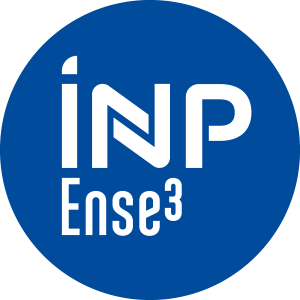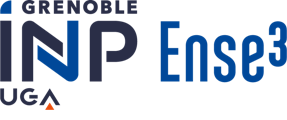
Informations générales
Number of hours
- Lectures 17.0
- Projects -
- Tutorials 17.0
- Internship -
- Laboratory works 16.0
ECTSECTS
3.0
Goal(s)
Part I: Hydraulic machines
This course, organized around theoretical and experimental activities, aims to train engineering students on essential concepts in hydraulic machines and their coupling with hydraulic circuits. The proposed case studies concerns concrete issues existing in the industry.
Part II: Rotating electrical machines
This teaching presents the means of converting electrical energy into mechanical energy. The different electromagnetic motor technologies will be presented and modeled (MCC, MS and MAS). The compromises and criteria for choosing / designing the machines will be discussed. Finally, an opening on “unconventional” means of conversion will be provided.
Responsible(s)
Regiane FORTES PATELLA
Content(s)
Hydraulic machines:
- Notions on hydraulic machines: orders of magnitude, use and operation
- Application of conservation equations to pump geometries (Euler's theory)
- Pump / circuit coupling; choice of pumps
- Similarity in turbomachines
- Study of the phenomenon of cavitation: implantation of a machine, field of operation, cavitation erosion
Rotating electrical machines:
- Electromechanical conversion
- Direct current machines as the ideal machine to drive
- Rotating fields and study method for alternative machines
- Synchronous machines
- Asynchronous machines
Hydraulic machines:
- Fluid mechanics: balance equations, hydrostatic
- Head losses and hydraulic systems
Rotating electrical machines:
Complex numbers, Phasors and Fresnel representation, law of nodes and meshs, notions of mechanics (torque, speed, force) and electromagnetism (B, H, Flux and laws: Ampere, Coulomb, Lentz theorems ...), vector product .
Test
First Session :
Evaluation rattrapable/ ER assessment (ER) : 2 hours supervised written exam
Evaluation non rattrapable : EN assessment (EN) : comptes rendus de TP, DM
If distant learning mandatory:
ER assessment : 2 hours homework
EN assessment (EN) : comptes rendus de TP, DM
---------------
Second session
EN assessment: Retaking this assessment is not possible
ER assessment: 2 hours supervised written exam
Moyenne de l'UE = ER 60% + EN 40%
Calendar
The course exists in the following branches:
- Curriculum - Master of Engineering GEE - Semester 5-6
Additional Information
Course ID : 3EUAMTO8
Course language(s): 
You can find this course among all other courses.
Bibliography
- Techniques de l’Ingénieur (pompes volumétriques et centrifuges, turbines, aménagements hydroélectriques, …)
- Hydraulique générale et machines hydrauliques, M. CARLIER, éd. Riber, 1963
- Polycopié de « Circuits hydrauliques », ENSHMG, tomes 1 et 2, A. BONAZZI
- Turbomachines hydrauliques et thermiques, M. SEDILLE, Masson & Cie, 1966
- La cavitation, JP FRANC et al., Presse Universitaires Grenobloises, 1996
- Turbomachines hydrauliques. Choix illustré de quelques réalisations marquantes, P. HENRY, Presses polytechniques et universitaires romandes, 1992
- Mémento des Pertes de Charge , I.E. IDEL’CIK, Ed. Eyrolles, 1960
- Machines électriques. Genon, André, et Willy Legros. Hermès science, 2000.
- Machines électriques tournantes?: conception, dimensionnement, fonctionnement?: électrotechnique. Laporte, Bernard. Ellipses, 2007.
- Électrotechnique à l’usage des ingénieurs . Tome II . Machines électriques. Fouillé, André, et Lefrand Edouard. ?8e édition, Dunod, 1969.


